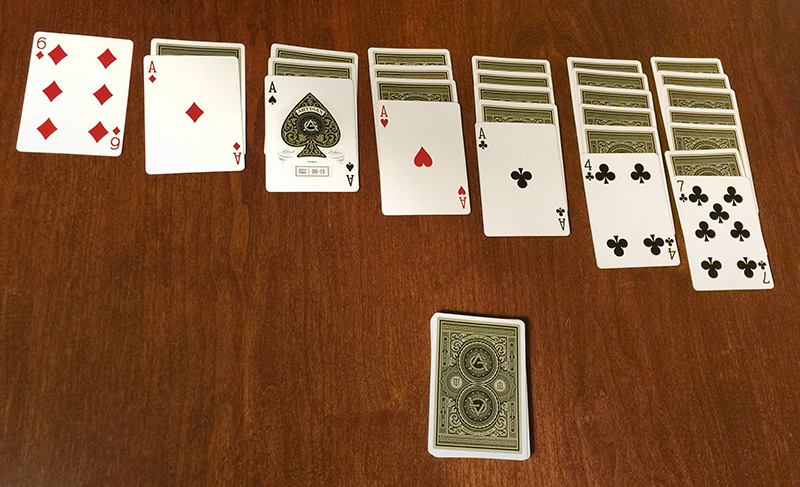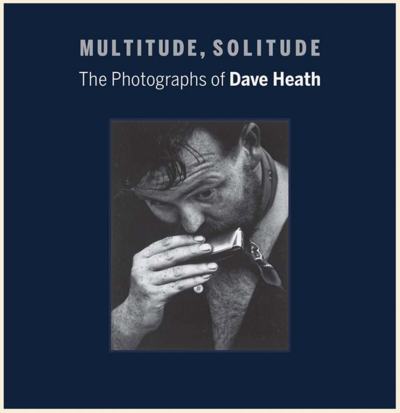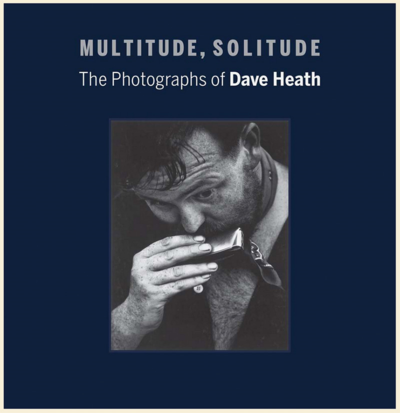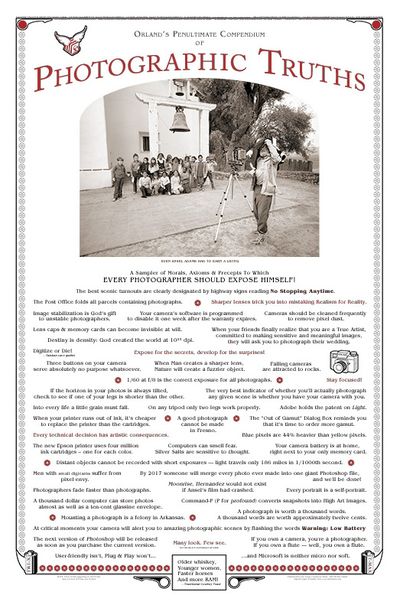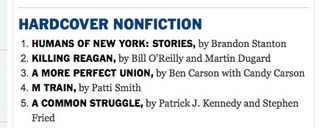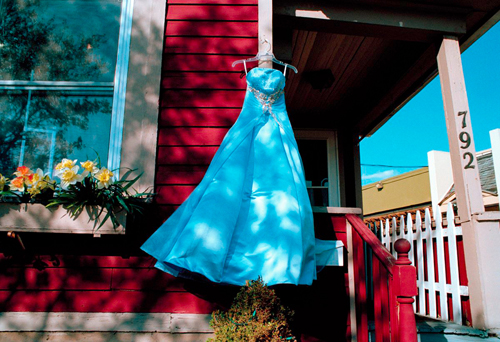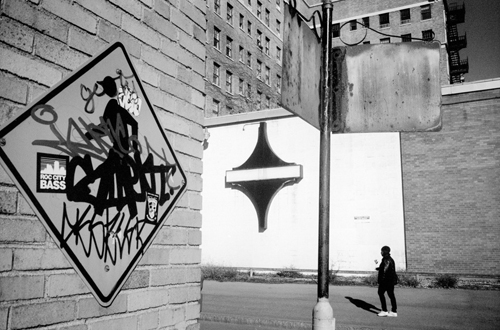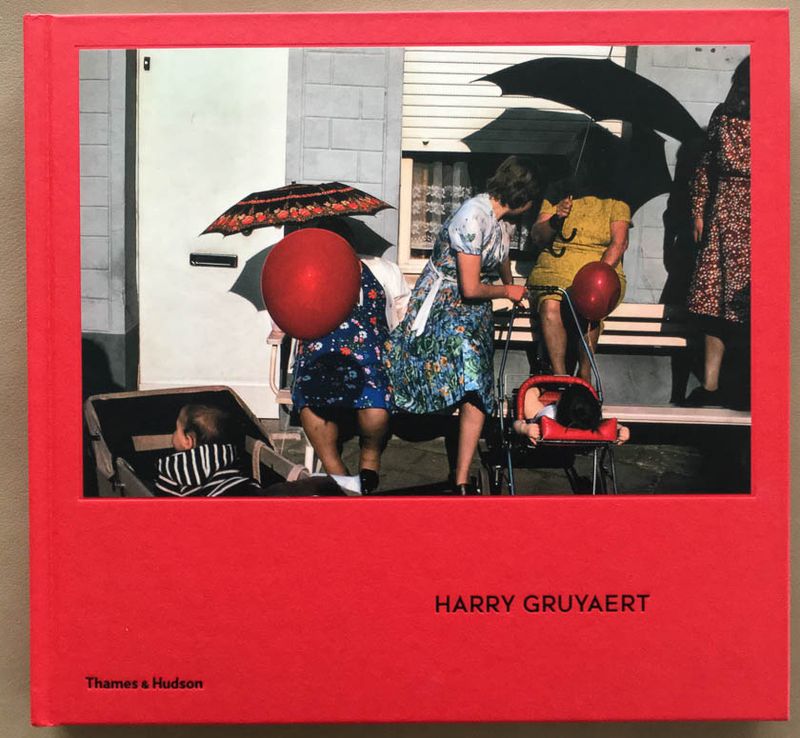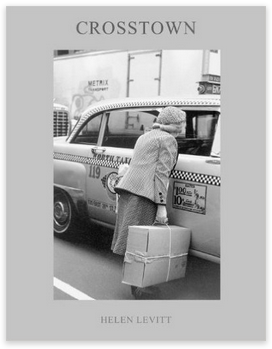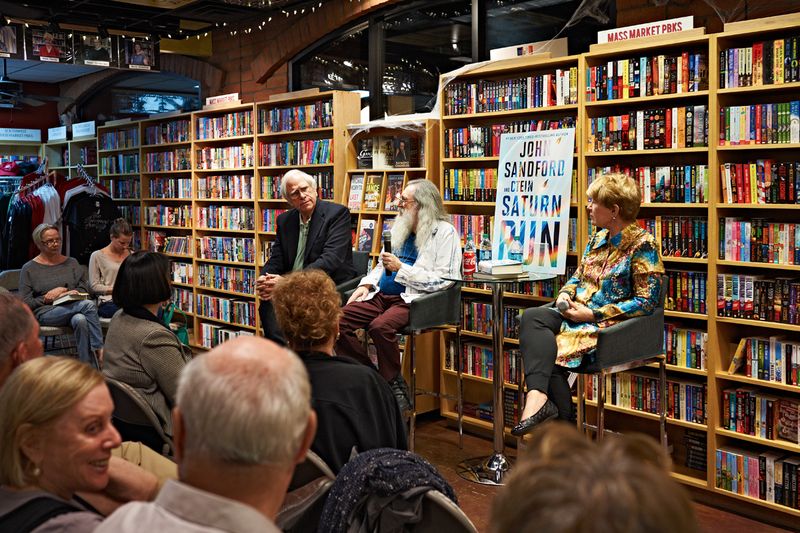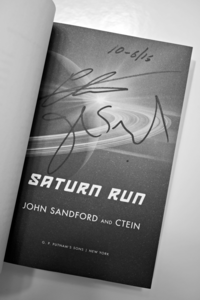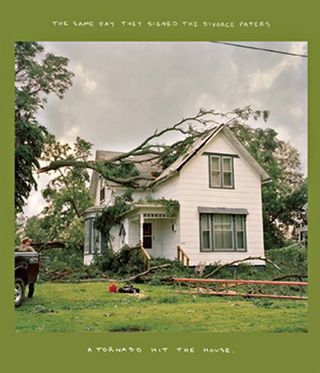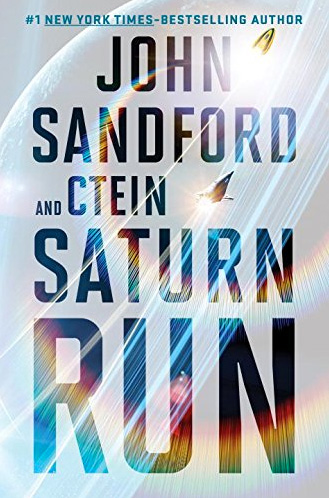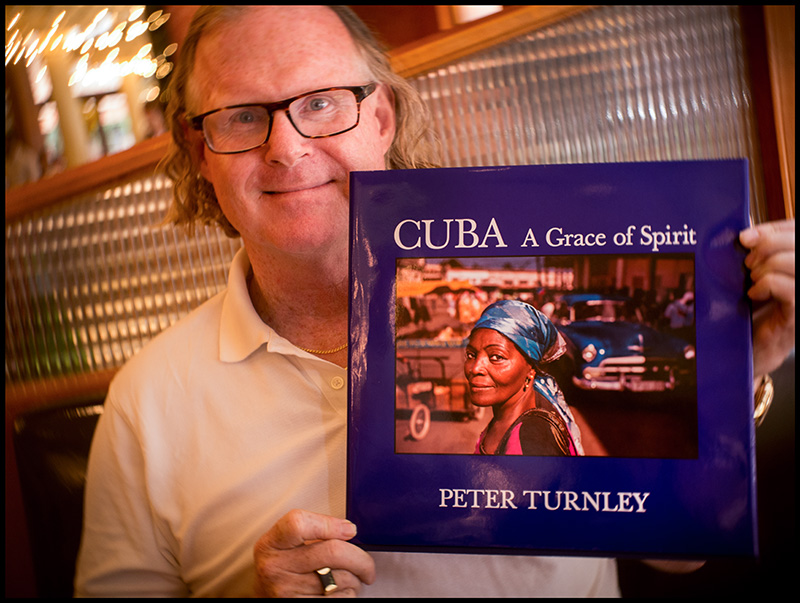A cheerful plug—this is not objective or disinterested, because I love this book (I own a print from it), and Peter is a good friend, and Peter paid me generously to help publicize the book when it first came out. (It was a big success, thanks in part to me, and by "me" I mean you.) But—French Kiss is the perfect Valentine's Day gift. If you already own the book, you can probably attest to that. And if you order before the end of the day on Tuesday you can get it in time for Valentine's Day on the 14th. (International orders might not arrive in time.)
This is the print I own from French Kiss. This would be a great
shot even without the cat.
There are five hundred copies left of the second (and probably last) printing. It's a really nice book, suffused with a lighthearted spirit of romance and the affection that passes between lovers and friends. The book was made to be a gift, with a stout and handsome red cloth slipcase. If one friend doesn't like it, another will. Can't lose.
The real deal
On a different subject, what do you think the chances are of this?
This isn't a setup, this was a real deal, with a well-shuffled deck, dealing in rows from left to right. I once had my arithmetical skills derided by no less an eminence than Daniel Boorstin, celebrated historian and author and the Librarian of Congress at the time, and I doubt I could calculate the chances of one ace showing in a game of Klondike, much less all four, still less the chance of all four showing in a row. By the way, the idea of having to take a statistics class is a component ingredient in my idea of hell. I've never taken a statistics class—I only know just enough about it to know that it would torture me. Anyway, after some hard thought about my lack of mathematical aptitude and my ignorance of statistics, I've concluded that, in all mathematical likelihood, it's going to be a long time before I see this again.
Good Sunday to you. Gordon Lewis's thoughts about the new Olympus Pen-F on the morrow.
Mike
[UPDATE: As Gerry pointed out in the Comments, I should have said probability, not statistics. My bad. —MJ]
"Open Mike" is the Editor's page of TOP and is often off-topic or personal in some way. It appears on Sundays.
Original contents copyright 2016 by Michael C. Johnston and/or the bylined author. All Rights Reserved. Links in this post may be to our affiliates; sales through affiliate links may benefit this site.
(To see all the comments, click on the "Comments" link below.)
Featured Comments from:
Patrick Perez: "I gave my copy to my girlfriend for Valentines Day two years ago. But now she's my wife so I still get to see the book."
Duncan: "Here's my back of the envelope calculation for the probability of getting four aces in a row. It is .000014775, or 1 chance in 67,681.25 deals of the cards. So unless you play Klondike something like 2,000 times a year (assuming you've got another 35 years left), it's unlikely you'll ever see this again. If you want the gory calculation details, let me know and I'll send them along."
John Camp: "You're a smart guy, so you probably don't lack an aptitude for math, but probably probably lack an interest in it. When I took ninth grade algebra, I got a C, and was lucky to get it—when my father pushed me on it, I told him that nothing I would ever do in my life would require me to know algebra. I was wrong about that, but something interesting happened in demonstrating my wrongness. When I was a newspaper reporter, I was packed off to a special intensive class at Northwestern to study statistics and probability and polling; I did quite well, because everything I studied had a practical application. Twenty years later, when I was involved in archaeology in the Middle East, I took a community college course in surveying, which included trig. I did quite well in trig, because again, it had a demonstrable relationship to something practical. So math without a demonstrable application was hard to me—but with an application, not really a problem. I suspect there's some math involved in lens calculations, and you're a lens guy. Does that math defeat you?"
Mike replies: In my very earliest exposure to arithmetic, I was quite put out by numbers because no one would tell me what. That is, when they said "what's two plus two?", my response was "two what?" It seemed obvious to my childish brain that "two" means "...of a kind," and you can't add two of one kind to two of another kind. For example, two sheep plus two sheep is four sheep, but two sheep plus two oranges is still two pairs of things and not four sheep or four oranges, and two sheep plus two days is not four of anything.
Elisabeth Spector: "Hmmm...my back-of-the-envelope calculation gives 1/67,659 (admittedly with some rounding error)—similar to Duncan's result. So, did you win the game with this auspicious start?"
Mike replies: I play Klondike allowing only two single-card-turn passes through the deck, so clearances are rare, but, yes, this one scored a 52.
Yonatan Katznelson: "The back of my envelope agrees with the back of Duncan's envelope. Explanation (even though you didn't ask, and which you can ignore): To deal the pictured Klondike hand the four aces have to be in positions 8, 14, 19 and 23 of your well-shuffled deck. There are three other sets of four positions in the deck for the four aces that result in seeing them displayed in a row like that—so four total 'good' ways of positioning the aces in the deck so they come out in a row. There are 270,725 (52C4) possible placements for the aces in the deck, so the probability of seeing 4 in a row like that is 4/270,725 ~ 0.000014775."
Rube Redfield: "Statistics has nothing to do with math (neither does Sudoku), but everything to do with probability. I teach statistics (along with a basic 'learn your digital camera' course) at university in Japan and I am sure you would love it. I do it in a computer lab; the computer does all the math, everything is hands on, and the graphics are both beautiful and instantaneous. All you have to do is learn how to interpret them."
mao: "Given that you have two sets of answers from your readers, and you claim to be bad at math, what are the odds that you picked the right one for the Featured Comments? My reading of the problem agrees with the low probability camp, but to achieve better agreement on answers you receive, you may need to improve you skill at writing math problems ;-) "
Mike replies: ...Which deficiency certainly stands to reason. Also my lack of concern about discrepancies in the answer.
For the record, the problem, I think, is four aces next to each other but in any order of suits and anywhere in the array (four possible positions). Reason? Well, I dunno. But I think the fact that they were all in a row increased my sense of wonder at the occurrence, whereas I don't think I would have been any less amazed if the row of four was in any different position in the array (i.e., all the way to the right or all the way to the left or with two other cards to the left of the aces instead of one). Which is a totally subjective and impressionistic reason for formulating a probability problem, but then, the only college-level math course I ever took was called "Math for Poets."


